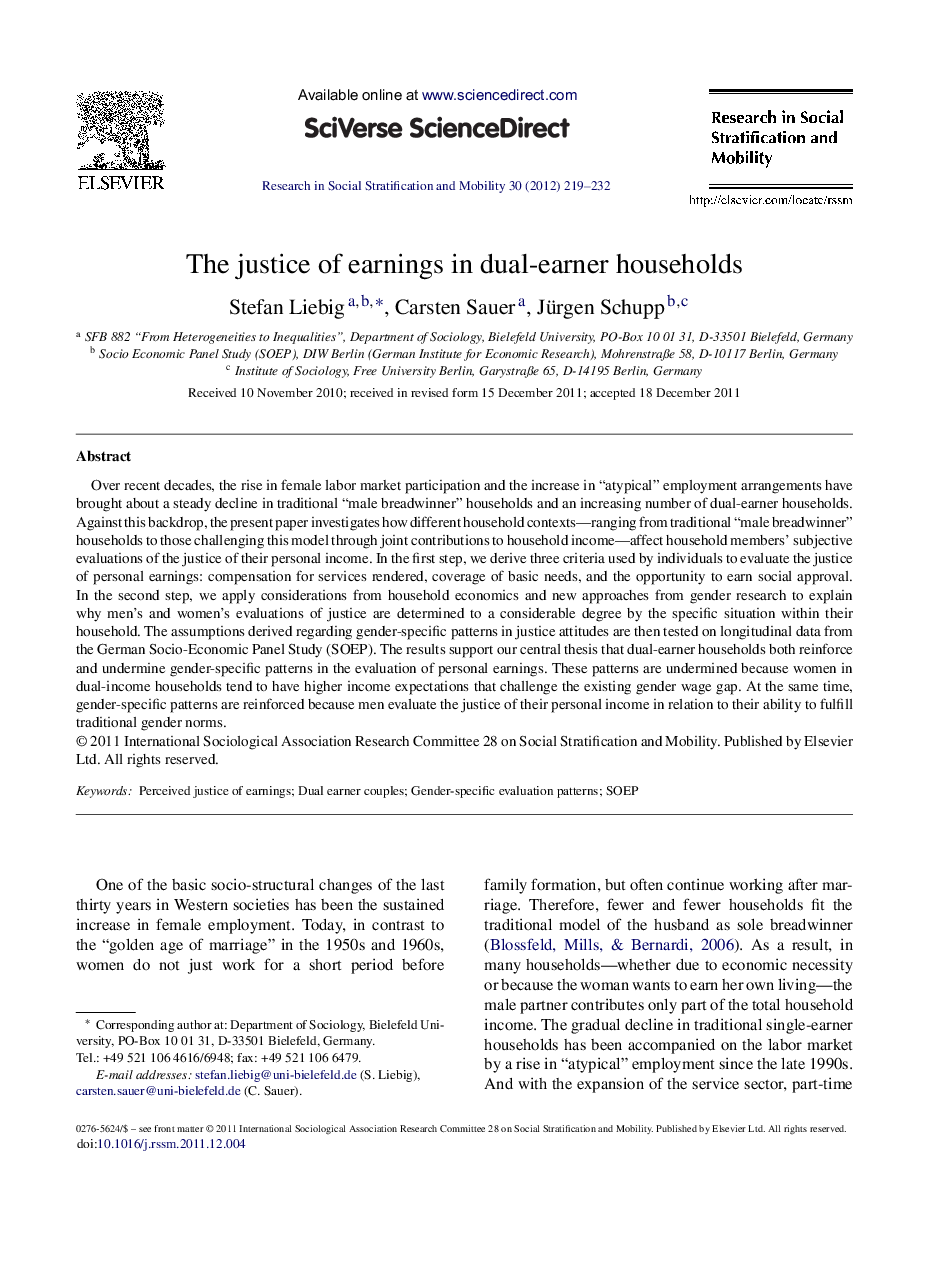| Article ID | Journal | Published Year | Pages | File Type |
|---|---|---|---|---|
| 998593 | Research in Social Stratification and Mobility | 2012 | 14 Pages |
Over recent decades, the rise in female labor market participation and the increase in “atypical” employment arrangements have brought about a steady decline in traditional “male breadwinner” households and an increasing number of dual-earner households. Against this backdrop, the present paper investigates how different household contexts—ranging from traditional “male breadwinner” households to those challenging this model through joint contributions to household income—affect household members’ subjective evaluations of the justice of their personal income. In the first step, we derive three criteria used by individuals to evaluate the justice of personal earnings: compensation for services rendered, coverage of basic needs, and the opportunity to earn social approval. In the second step, we apply considerations from household economics and new approaches from gender research to explain why men's and women's evaluations of justice are determined to a considerable degree by the specific situation within their household. The assumptions derived regarding gender-specific patterns in justice attitudes are then tested on longitudinal data from the German Socio-Economic Panel Study (SOEP). The results support our central thesis that dual-earner households both reinforce and undermine gender-specific patterns in the evaluation of personal earnings. These patterns are undermined because women in dual-income households tend to have higher income expectations that challenge the existing gender wage gap. At the same time, gender-specific patterns are reinforced because men evaluate the justice of their personal income in relation to their ability to fulfill traditional gender norms.
